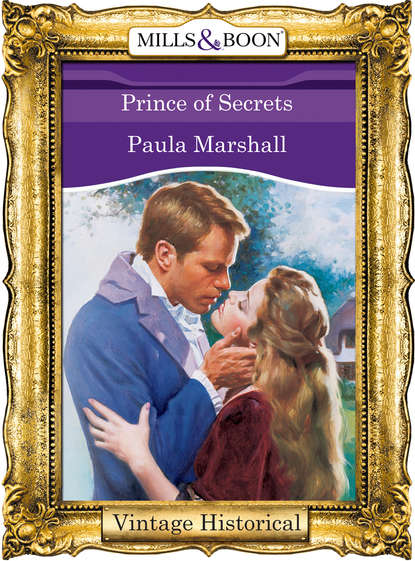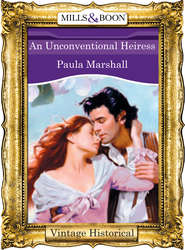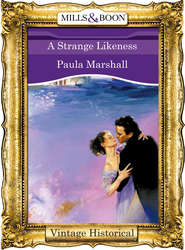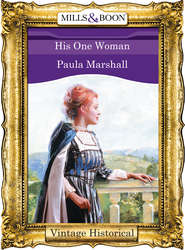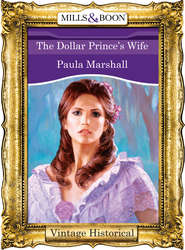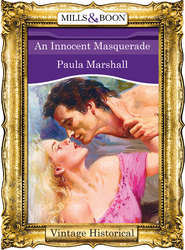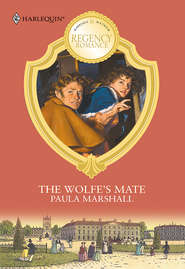По всем вопросам обращайтесь на: info@litportal.ru
(©) 2003-2024.
✖
Prince Of Secrets
Настройки чтения
Размер шрифта
Высота строк
Поля
He remained an enigma. She could be sure of nothing. He might—or might not—be having an affaire with Susanna. He might—or might not—be doing a thousand other things, some of which might—or might not—involve him in using the magician’s tricks which she had found in the cupboard in his room.
For no reason at all she thought that he was in some way involved with the police—but how and why she had no idea. She also had no idea whether or not he was enjoying himself in England, and whether he intended to stay, or whether he meant to return to the United States—and if so, when?
Markendale was even bigger than Moorings. It had been built early in the eighteenth century and had little of Moorings’ airy charm. It was a barracks of a place, furnished heavily by William Kent, and looked out across the moors.
Its attraction for Lord Kenilworth and his guests was its nearness to the railway line which led to Doncaster, where the autumn race meeting was held. Dinah found racing boring, and she was pretty certain that Cobie felt the same. He had once said to her when she had asked him why he didn’t buy any horses to race that his interest in horses was confined to riding them, not watching midgets doing it for him.
‘Now that is for your ears only,’ he told her, lightly. ‘They would probably drum me out of English society forever if they found out that I thought any such thing!’
Dinah could lose herself by wandering through the corridors at Markendale, admiring the paintings on the walls, and visiting the library, which was excellent, although there was no sign that anyone in the house-party ever used it other than to read the daily papers in it, or write the occasional letter there.
By doing so she could avoid the idle chit-chat of the other women. Never mind what the Marquise had taught her, she deserved a little time to herself, and so she told her husband when he came to find her, late one afternoon, curled up on the window seat in the library, half-hidden by the curtain. She was not reading anything improving, but was deep in Mr Henry James’s novel, The Princess Casamassima.
She looked up at him, impudence written on her face. ‘I hope that you have not come to reprimand me.’
‘For what?’ He was brief. She had noticed that when they were alone this was more his style than effusiveness was.
‘For not joining in, for hiding myself away.’
He sat down opposite to her in one of William Kent’s chairs, and shrugged. ‘You deserve a little time of your own.’ He nodded his head at her book, ‘Something serious?’
Dinah knew from his tone that he was roasting her—she was reading his voice more and more easily, and knew that his subtle double-entendres were always intended, never accidental.
She decided to return the compliment, ‘You might say so.’ She showed him the title-page. ‘It is, after all, about us, I mean our society.’
He nodded agreement. ‘You should read The American—and then tell me whether you think Mr James describes us correctly.’
Her answer was oblique. ‘Most of the Americans I have met are not at all like you.’
‘Is that meant to be a compliment?’
‘If you like.’ Her smile at him was as sweet as those which he usually offered her.
Cobie laughed, rose and came over to her, to bend over her, to put his hand on her neck and kiss her tenderly.
‘You learn quickly,’ he told her, ‘and now, you must learn something else—a little patience with the inanities of this life. We are going to the races at Doncaster tomorrow, and I have said that you will accompany me. You would rather do so, would you not, than remain behind with most of the other women?’
Dinah made a little face. ‘I would rather neither, if you follow me. But, yes, I would prefer to go with you.’
‘Good, and now come with me. It is almost tea-time, and the Prince is asking for you. I see that you are dressed for it.’ He directed an approving look at her cream and pale violet silk tea-gown.
‘Dressed for everything,’ remarked Dinah irrepressibly, ‘Do you know, I calculate that I change my clothing on an average of nearly six times a day?’
‘At that rate,’ Cobie returned, ‘I believe that you surpass me, which I would have thought difficult.’
Dinah had to prevent herself from asking him if one of his many changes when they were in London was into his curious brown suit, and if so, where he went in it. Her silence he took for agreement, and companionably—for they were nothing if not that, she thought ruefully—they passed into the Great Hall, which was now used as a drawing room. It was the middle bar of an H, the two newer wings being the outside ones.
There was a huge hearth with a great fire roaring in it. Assembled there was the entire house party, including those members of it who had arrived only a few hours earlier: Sir Ratcliffe and Lady Heneage, Arthur and Susanna Winthrop and Mr Hendrick Van Deusen, who was the only member of the party to attend without a large retinue of his own.
Afterwards Dinah thought that there was something symbolic about the company, who were never all to meet under the same roof again. As though her and Cobie’s arrival was some sort of signal, Violet rang for tea to be served, while Cobie steered Dinah towards the Prince who was seated in a huge armchair, near to the fire. His Princess was a few yards away in another, her complexion shielded by a large tapestry screen mounted on a pole.
‘As you commanded, sir,’ said Cobie. Dinah, bowing gracefully, had her hand taken by the Prince.
‘None of that formal nonsense here, Lady Dinah,’ he boomed. ‘We are all friends together, no more and no less. Where do you hide yourself, these days, hey?’
‘In the library, sir.’ Dinah thought that he deserved no more and no less than the truth. She could see Violet rolling her eyes and frowning at her, could feel the eyes of half a dozen jealous women boring into her back.
‘In the library, hey! I thought as much, and what do you find to amuse yourself there? And what does your husband think about having a blue-stocking for a wife?’
Dinah was demure, ‘I think that he rather likes the idea, sir.’
‘But you’re not sure,’ he offered her shrewdly. ‘A man of action, your husband. Violet tells me that you wished to go to Oxford, to be a lady scholar. Is that true? You are too charming, I will not say pretty, to be wasted in the cloisters.’
He sat back and smiled at her scarlet face, ‘D’you mind me not calling you pretty, hey?’
‘No, sir, if that is what you think.’ But she did, a little.
‘Sensible girl, aren’t you? Not many women would have given me that answer. No, you’re not pretty, but you are becoming beautiful—which is better than pretty and will last longer. Clever man, your husband.’
This was a trifle oblique, but Dinah thought she took the Prince’s meaning—that it was Cobie who had transformed, and was still transforming, her.
‘I think so, sir.’
‘He is proud of his young wife, I am sure.’
Dinah wasn’t sure, but she said, politely, ‘Oh, yes, and I am proud of him. I wouldn’t like to do anything to distress him. He has been very kind to me, you know, sir.’
Tea had arrived while they were talking and he waved Dinah to a chair beside the Princess who made something of a fuss of her. She complimented her on not over-eating, asked her if she intended to join them at Doncaster on the morrow, and created among those assembled there more jealousy of the raw chit who had been the sensation of the season, and now looked like outdoing her own sister.
Conversation became general. The Prince rose, which had everyone else on their feet, and Dinah found herself talking to Mr Van Deusen who had been sitting quietly by the fire, diagonally from her, enjoying the delights of the most enormous spread which she had ever seen a man eat.
‘Enjoying yourself, Lady Dinah?’
‘I think that I should like notice of that question, Mr Van Deusen.’
He gave a gusty laugh. ‘You look as though you are.’
‘Appearances often deceive, Mr Van Deusen.’
He now gave her the sharpest look. He had doubtless, in the dubious past—she was sure that it was dubious—which he shared with Cobie, heard him say that. Perhaps more than once.
Before he could answer her, she added, ‘It depends, I think, on what one means by enjoy.’
A slow smile crossed his broad face, ‘Oh, yes, Lady Dinah. Do let us logic-chop. Such a change from the usual conversation at these places. You have been learning from…Jacobus.’
He had nearly said Jumping Jake, because watching her he could see how much a pupil of his she was, and how much she had learned from him.
‘Yes, from Jacobus. He has never told me where his name came from. Do you know, Mr Van Deusen?’





